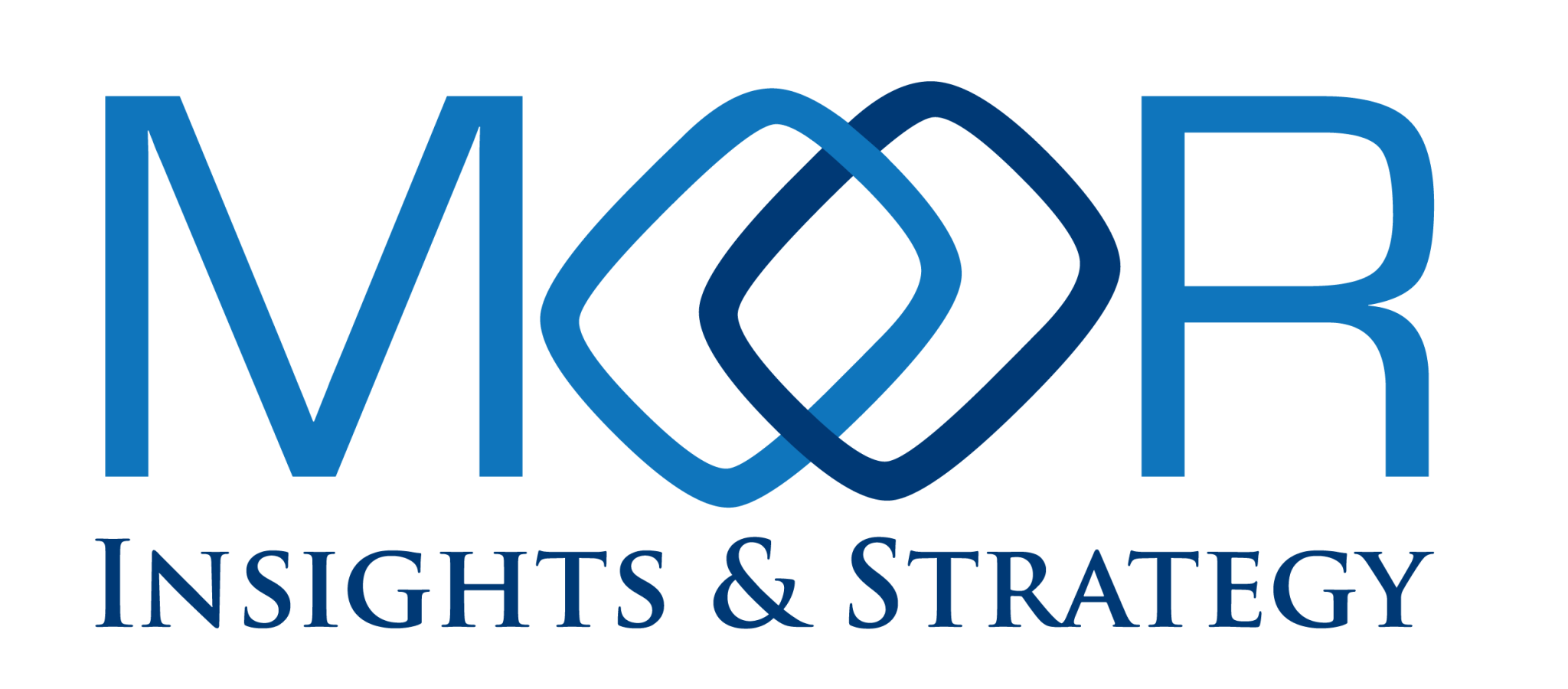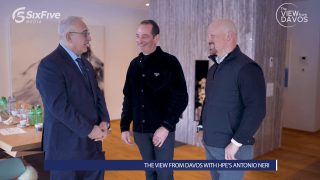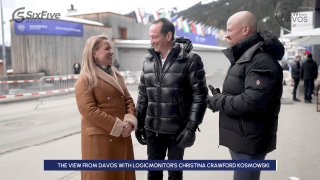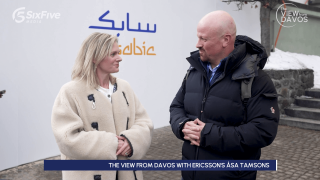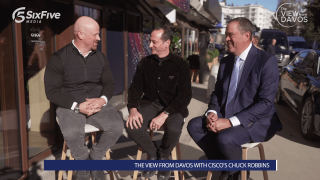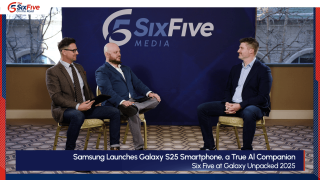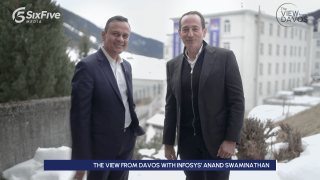AI is accelerating everything…including energy demand and climate change?
Patrick Moorhead and Daniel Newman are at WEF25 where they’re joined by AccuWeather‘s Dr. Joel N. Myers, Founder and Executive Chairman for this installment of The View From Davos. Dr. Myers shares insights on the critical role of weather forecasting in global decision-making and climate change adaptation strategies.
Tune in for these key takeaways:
- How much we can expect the rise of AI to increase energy demand in the next 10+ years
- Fusion energy? Why it could be the ultimate solution but its widespread availability remains uncertain
- The future of weather prediction and its implications for the global community.
- The evolution of weather forecasting technology and its impact on global business and safety.
- Fostering a culture of innovation for successful AI implementation
Learn more at AccuWeather.
Watch the video below, and be sure to subscribe to our YouTube channel, so you never miss an episode.
Or listen to the audio here:
Disclaimer: The View From Davos is for information and entertainment purposes only. Over the course of this webcast, we may talk about companies that are publicly traded and we may even reference that fact and their equity share price, but please do not take anything that we say as a recommendation about what you should do with your investment dollars. We are not investment advisors, and we ask that you do not treat us as such.
Transcript:
Patrick Moorhead: The Six Five is On the Road with a View from Davos. We are having some incredible conversations here about tech, about finance, maybe a little politics put in here, but let’s put politics aside for a second. I want to introduce Dr. Myers. Dr. Myers, great to see you.
Dr. Joel N. Myers: Glad to be here.
Patrick Moorhead: Yeah, it’s been fun. So we’re all here at Davos. What are you trying to get out of this conference? What are the things that you’re going to be looking for?
Dr. Joel N. Myers: Well, I always learn a lot. Lots of creative people, brilliant people here, and so I always come back with new ideas and connections. And of course, business connections lead to business for AccuWeather, and ultimately it’s a business trip.
Patrick Moorhead: I love it. Same here. This is a business trip for us as well.
Dr. Joel N. Myers: Yeah.
Daniel Newman: It’s an interesting time though. We’re in the middle of a pretty significant day today, the inauguration of a new president in the United States. I know you’ve been in this business, I think, what, over 60 years now. So lots of change going on here in Davos. There’s always a bit of impact on how, not just impact on the weather, impact on climate, but there’s impact with different administrations on how this is all being sort of sought and seen. Just kind of interested, any thoughts on this big day, national championship football game, inauguration day, and of course first day of Davos, about how things are going to play out over the next few years?
Dr. Joel N. Myers: Well, clearly there’s going to be changes, different view of climate and business, and hopefully it’ll be positive. But you’ll have to wait and see the changes. I think one thing we’re going to see is greater government efficiency, but a big change obviously is coming.
Daniel Newman: But in terms of your world, let’s zero in a bit on climate and weather. We know this event has historically been very climate-centric, but it’s a little different now. It’s been very AI-centric. And AI is almost diametrically opposed to some of the sustainability conversations we’ve had. We know as tech analysts the amount of energy and power that’s going to be required. I think they’re probably going to be talking about everything from fusion to how we can grow in nuclear power because we certainly can’t keep doing it the way we’re doing it today. Do you have any thoughts on that conflict? Because I know you’re big on AI, you’ve been doing machine learning for decades now. We’re at a pretty big inflection.
Dr. Joel N. Myers: Yeah, well, humanity’s at a big inflection because of AI and because of the acceleration of technology as we all know. And that acceleration is accelerating. And so we have less ability to predict the future except for AccuWeather forecasts, of course, than ever before. And you’re right, I haven’t heard many people talk about it as a conflict, but I guess it is because AI is going to demand more and more energy. And I think a lot of the forecasts that we’re reading of how much energy we’ll need over the next 10, 12 years are too low. I could see the demand for energy doubling over the next 12 years. And clearly, where’s that power going to come from? And most of it’s going to come from the traditional sources, oil and gas, and even coal, even as rapidly as the alternatives are accelerating. And the only answer ultimately for humanity is fusion, because fusion produces no greenhouse gases and will be a real breakthrough. But how far off it is and is it going to be available on a huge scale, that remains to be seen. But AI may help us solve that problem.
Patrick Moorhead: Yes, sir. Dr. Myers, first of all, congratulations on your 63 year-old startup.
Dr. Joel N. Myers: Thank you. And that’s what it is. That’s how we call it, and that’s how we act at AccuWeather, always focused on creativity, innovation, and moving the boundaries forward.
Patrick Moorhead: So you’ve been doing this for 63 years.
Dr. Joel N. Myers: Yeah.
Patrick Moorhead: I haven’t, I think I’m just a mere 35 years in the game here. But I look at weather and analysis as one of the first big data exercises. I’m curious, we see all these generative AI startups, but it’s all about data. Are there any words of inspiration, words of wisdom, that you can give the generative AI startups today that you’ve learned in your 63 years at AccuWeather?
Dr. Joel N. Myers: Well, the data’s important, and obviously that’s one thing at AccuWeather we focus on. The data has to be the best, the cleanest, the most reliable, greatest depth, more time, minute by minute, hour by hour, more points on the planet than any other anybody else, 300 parameters. So it’s the depth and breadth and the cleanliness of the data. The old saying, “Garbage in, garbage out. So we get better results for the companies we work with. We work with thousands of businesses around the world to develop and train algorithms that are going to allow better prediction of whatever the weather correlates to. And it correlates to a lot of things.
Patrick Moorhead: Just generative AI, does it help anything in your universe of weather?
Dr. Joel N. Myers: Yeah, we used AI before people called it that.
Patrick Moorhead: Sure.
Dr. Joel N. Myers: But it’s not just the computer. But we found the best, the most accurate forecasts, are a combination of the computer outputs and taking the best of all the computer models. And we have 192 forecast models that cover the globe that we bring in from all, Canadian Weather Service, Europe, the US and private sources. But it’s taken the best of those in an AI way. But then also using our meteorologists, over 100 forecast meteorologists and their experience. I mean hurricane experts and tornado experts that can beat any model. And given the best model combination. And then the humans who are experts produce the best and most accurate forecast. And part of that is communications. In the end, a forecast is only as good as the decision people make based on it.
Patrick Moorhead: Sure.
Dr. Joel N. Myers: And so a lot of the output on things don’t take that into account. You can issue a warning that causes people to say, “Oh, I’ve lived through that before.” Or a warning that causes them to say, “I better get the hell out of my house because it’s going to burn down.” And that’s the key in the end to any kind of a forecast.
Daniel Newman: Yeah. Well, speaking of burning down, we’ve had some pretty chaotic weather climates. Of course, there’s always a continuum of people’s assessment of what’s happening, but just for instance, LA, we’ve seen a just unprecedented set of wildfires. Any sort of thoughts on the impact of climate and what are some of the things that with weather that someone like yourself with all this data, all this experience, is sort of suggesting and recommending? I’m sure you talk to leaders, and I’m sure you talk to politicians and different advocacy groups. What are you recommending to try to avoid this or at least be more prepared for situations like this so they don’t keep happening?
Dr. Joel N. Myers: Well, last year at Davos, I launched my book, Invisible Iceberg: How Weather and Climate Shaped History. And of course the weather and climate have shaped history and have impacted humanity from the beginning, from going way back what things got set up for humanity by the comet that hit the earth and destroyed the dinosaurs. And we were in an ice age just 12,000 years ago where the ice was two and a half miles thick over Montreal, Canada and the ocean levels were 450 feet lower than they are today, just 12,000 years ago. So the Earth has been warming since then. It was a little ice age up to 1850. So naturally the Earth has been warming coming out of the ice age anyway. But humans are certainly contributing to that warming and impacting the climate and there are more and more of these disastrous effects. And we’re going to have to continue to deal with those. And in some parts, the statistics that we use, talking about the database that we talked about earlier, that AccuWeather has, suggests that the warming is going to, in some places is happening faster than the climate models suggest.
So everybody’s using the same climate models and can make general forecasts, but our statistical analysis show that the warming in some places is happening faster than those models suggest. And you have to keep that in mind too. Some parts of the world are warming very slowly, other parts much more rapidly. So the individual forecasts long term have to take that into account. Now, getting to California, the things humans did or didn’t do on top of the climate change that caused this fire, it sort of shocks me that we depend on the government for so many things supposedly, that they were not better prepared to deal with the fires. I mean, a few small planes flying overhead, dropping water? I mean, it was like a war against the environment. That’s a political comment, I guess, and maybe I don’t know enough, but it just seemed to me, knowing how, I mean now, we estimated the total damage and economic loss, not only from the fires, but long-term from jobs loss, businesses gone, and all the effect that governments are going to have to spend and the health effects over years from the bad air, $250 to $275 billion, that was AccuWeather’s estimate. It’s got a lot of press as you know. That’s 1% of the GDP. And on top of the hurricane effects this year, we’re talking about 2% or more of the GDP lost due to environmental disasters.
Patrick Moorhead: I was going to say Dr. Myers, so I think, I believe, that the reaction to these fires is one of the worst government reactions we’ve seen in a while. I’m curious, and we talked about there’s garbage in, garbage out, there’s really good data and garbage response. And I’m curious, what is one of the best responses that you’ve seen due to weather where your data came in, gave an indication of something, and people made changes because of it?
Dr. Joel N. Myers: Well, the companies we work for, now with Hurricane Milton that hit Western North Carolina, we said five and a half days in advance for extreme Northern Georgia, Western North Carolina, extreme eastern Tennessee, there would be catastrophic flooding. Evacuate. You can’t be any more dramatic than that.
Patrick Moorhead: Right.
Dr. Joel N. Myers: Five and a half days in advance, constantly saying that. So some people left because of that and saved their lives. And other people unfortunately didn’t. But Hurricane Sandy that hit New Jersey. The company we worked for, we worked for a lot of businesses, told them eight days ahead. They told us that forecast, that one forecast, was worth $65 million to them. They had water and batteries and all the things people need in Pennsylvania, New Jersey, and Maryland. Before the hurricane hit, their competitors were out. And so this is the kind of help that we provide to businesses and to the public through our superior forecast. And that’s why we say AccuWeather has superior accuracy and it’s proven.
Daniel Newman: Well, Dr. Myers, maybe a final question. We did a really significant research study that’s actually going to be released here in Davos with Carney, and the focus of the study was really about CEOs and how they’re thinking about AI, implementing it, managing it, governing it. And one of the really interesting findings was that companies that were succeeding, now, again, it’s still early with AI. We could laugh because you’ve been doing it for four decades, but for a lot of companies and with really the disruption that’s happening, still pretty early. But when CEOs kind of tried to hold too tight, the CEOs and the boards held too tight to AI and sort of tried to joystick it into the company, those initiatives were struggling to be successful. It seemed more about the ability to delegate to your teams, the lines of businesses, the technologists. As someone who’s been doing this a long time, by the way, now you’ve even appointed a CEO for AccuWeather. You’ve taken that founder chairman role. I mean, what do you sort of think about that and how would you suggest to companies like yours, 60-year-old startups and new companies, that they can really get the most out of their AI projects and be successful?
Dr. Joel N. Myers: Well, as you said, we’ve used AI for a long time, and I did appoint somebody CEO, Steve Smith, almost two years ago, and I joked that that allowed me to cut back from 70 hours a week to 62. But I’m having a lot of fun. I’m doing more of the things I like to do. But that study doesn’t surprise me at all. You have to empower people. But I did appoint a couple of people to be sort of the leaders and the advocates across the company, but we brought a consultant in and trained everybody in AI and gave them the tools and encouraged those who wanted to, to play an active role. And five to 10% of people really embrace it and then become leaders in their area. So you got to empower people, give them the tools, and let them go. But we’ve always been, our motto is ICE, innovation, creativity, and entrepreneurship, and that’s how AccuWeather operates.
Daniel Newman: Sounds like every technological revolution ever. AI is just faster and a bit more.
Dr. Joel N. Myers: Right, yes.
Daniel Newman: It’s a bit more in our face right now, but it’s the same challenges about empowering your organization. Was it Steve Jobs, “You don’t hire smart people and tell them what to do thing.” It sounds like there’s a lot of that here. Dr. Myers, I want to thank you so much for sitting down with us.
Dr. Joel N. Myers: Sure, my pleasure, yeah.
Daniel Newman: Great conversation.
Patrick Moorhead: Thank you.
Daniel Newman: Congratulations on all the success.
Dr. Joel N. Myers: Thank you.
Daniel Newman: And we’ll hopefully catch up with you again soon.
Dr. Joel N. Myers: Yep. I look forward to it.
Daniel Newman: And thank you everybody for joining us for this episode of Six Five On the Road, a View from Davos. For Patrick Moorhead and myself, it’s time to say goodbye. Stick with us for all of our coverage here at the World Economic Forum 2025. We’ll see you all later.
